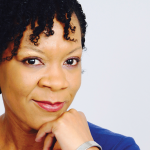Keisha Bell is an attorney, author, and public servant. www.emergingfree.com
 Instead of perpetuating a fallacy that is detrimental to the black community as a whole by shaming individuals to vote, spread the knowledge that black voters are influencing elections right now. Politicians and political party leaders, on local and national levels, know that the black voting block is powerful. The power remains with and without 44 in office. What a notion.
Instead of perpetuating a fallacy that is detrimental to the black community as a whole by shaming individuals to vote, spread the knowledge that black voters are influencing elections right now. Politicians and political party leaders, on local and national levels, know that the black voting block is powerful. The power remains with and without 44 in office. What a notion.Notifications